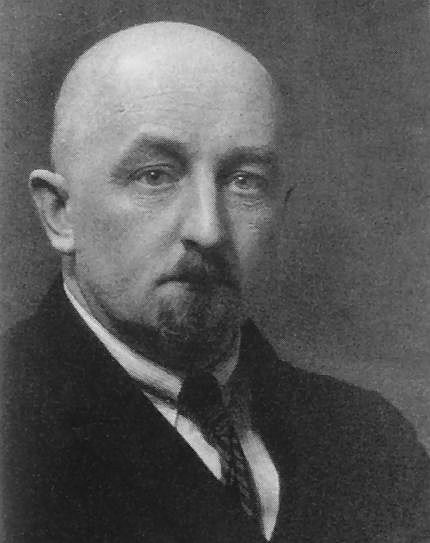Thomas De Hartman
Osho on Gurdjieff Disciple De Hartmann – It is something in the very nature of things that this kind of thing happens again and again, and will continue to happen again and again; it cannot be stopped. De Hartmann lived with George Gurdjieff for perhaps the longest period of any of his other disciples, perhaps forty years or more.
He was a great genius as far as music is concerned, and he was playing music for special meditations which Gurdjieff had devised. The music was also devised by Gurdjieff; de Hartmann had to bring the device into reality. Gurdjieff was a strange master, everything about him had the quality of strangeness. He himself was not a musician, but he understood what kind of vibrations could create certain states in man.
His understanding was about man, his meditation, his mind, the possibility of his receiving certain vibrations and being affected by them. He would explain his whole program to de Hartmann, and de Hartmann had become such an expert that he would make it a reality. But de Hartmann was not a disciple — this was where the trouble arose.
He had come to George Gurdjieff to be a disciple, but his genius about music took him on a different route: rather than being a disciple, he became an associate. He started working for Gurdjieff insofar as he needed music for his special dances, and he forgot completely why he had come. Gurdjieff reminded him many times: “de Hartmann, you are a perfect master as far as music is concerned, but you had not come here to play music.
And now your ego is feeling so fulfilled and contented that you don’t want to sit among the disciples. You have forgotten that your basic motive was not to play music here.” The separation was bound to happen one day, because finally Gurdjieff became very hard. And he said to de Hartmann, “You have to stop music completely, because music has become a barrier. Your music has helped others tremendously, but for yourself it has become a barrier.
You stop music completely! Burn all your musical instruments.” This was too much for de Hartmann. He was not an ordinary musician. He left Gurdjieff rather than leave music. And because he had lived for forty years with George Gurdjieff, and had remained in a very intimate relationship… but not as a disciple, remember — that was forgotten; that was why the problem arose. The intimacy was because of the music; Gurdjieff needed a musician.
He was taking his disciples around the world, showing people the immense effect of vibrations. In New York, in one of his shows, the disciples were dancing… They have to dance intensely and totally; they have to forget the whole world. But if the music stops, then they have to stop in whatever position they are in — if the hand is up, it remains up; if their eyes are open, they remain open, they don’t blink — a total stop.
If one leg is up in dancing, it remains where it is. And when the dance came to its climax, he gave the indication to de Hartmann to stop. As the music stopped, every dancer had to stop — just like statues, as if suddenly they had become marble statues, no movement.
It is a tremendous experience. In that gap, when all movement has stopped, you simply feel your existence, your isness. But when he said to de Hartmann to stop… the dancers were moving in a certain round and they were so close to the edge of the stage that with the sudden stop, one dancer fell from the stage. Because there was no way, you could not do anything — whatever happened, happened, you had to stop.
On top of him, another dancer fell. A whole line of dancers went on falling from the stage, as if they were dead bodies. The people who had seen that show could not believe… the silence of the disciples, their becoming centered, created a new vibration. Even the people in the audience who had no idea of any meditation certainly felt a new breeze, a silence surrounding them, and a peacefulness. For years, the intelligentsia of New York talked about the dance.
They could not believe what had happened; it was simply sheer magic. But nothing happened to de Hartmann. He was just a technician: he played the music — he was an expert — and when the indication was given he stopped it. But he remained in close proximity to Gurdjieff for forty years, and people naturally thought that he was a disciple, and a very close disciple.
And when he left Gurdjieff, he maintained the illusion — perhaps he himself was in the illusion — that he was a disciple, that he had learned everything that Gurdjieff knows… forty years is enough. That’s why he went to America to open his own school. A desire to become a master is a simple ego number.
His statement, Turiya, when he said to people, “You are more important to me than Mr. Gurdjieff,” is simply shameful — but this is the category of the Judas. In every master’s life there are bound to be Judases. It seems to be the law of nature that the people who come to a master don’t come with the same motivation. A few come to seek the truth, a few come to learn how to be a master.
